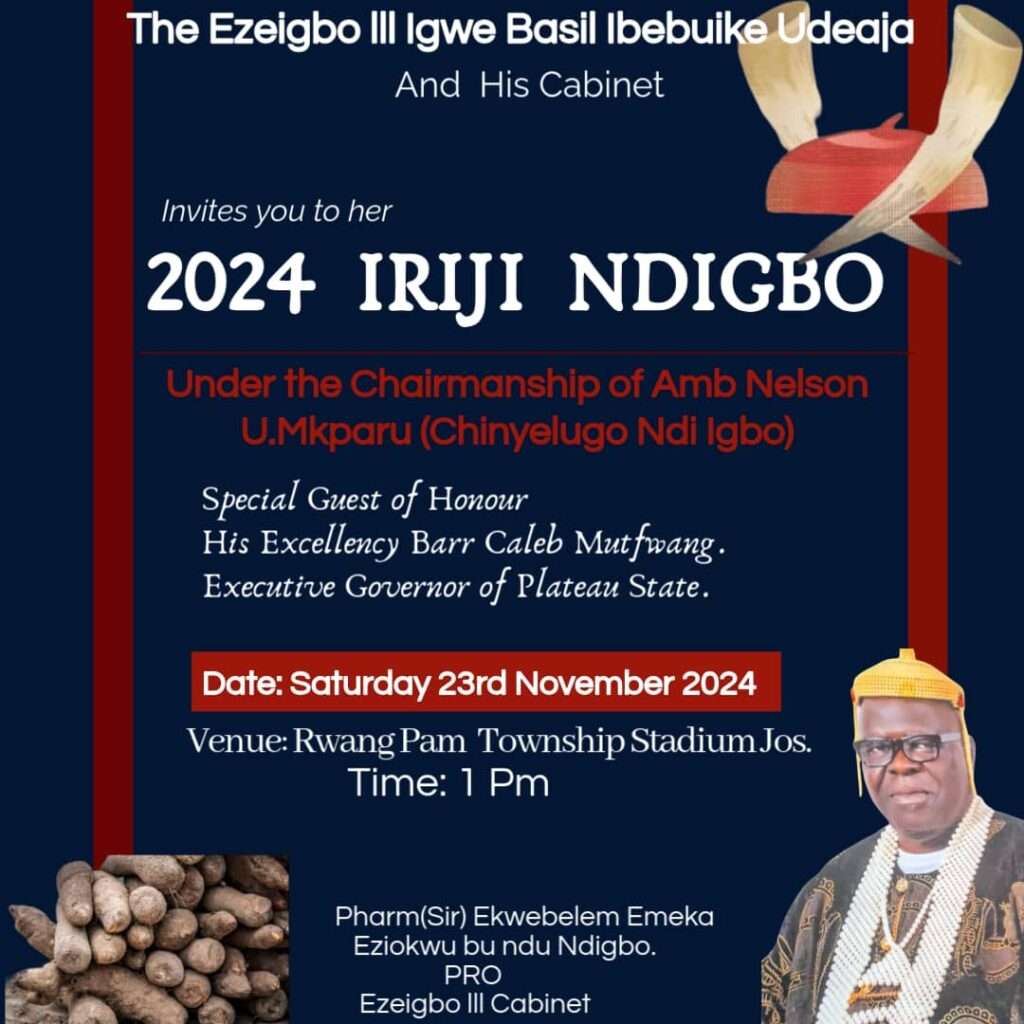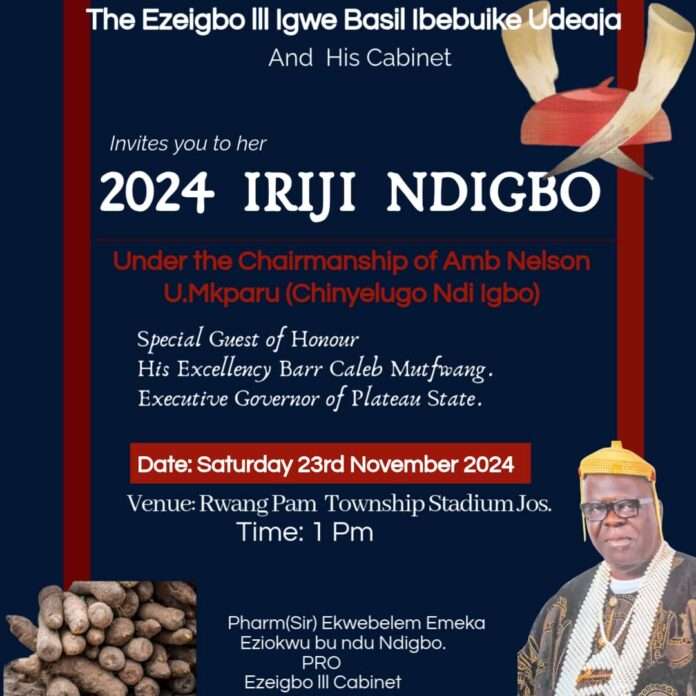
Iriji ndi Igbo refers to the New Yam Festival, a significant cultural celebration among the Igbo people of Nigeria.
The festival, known as IriJi Ohuru or Iwa Ji, symbolizes thanksgiving to God (Chukwu) and the gods of the land for a bountiful harvest of yams, which are a staple crop and a symbol of wealth, sustenance, and success in Igbo culture.

Key Elements of Iriji ndi Igbo
1 Timing: The festival is typically held between August and October, depending on the community, marking the end of the planting season and the beginning of the yam harvest but in recent years, some Igbo communities especially those in the cities outside Igbo land can celebrate Iriji in the months of November or December for convinient putposes.
2. Rituals and Ceremonies:Blessing of the New Yam: The community’s chief priest or a titled elder performs rituals to sanctify the first harvest. Yams are offered to the gods and ancestors before they are consumed by the living.Feasting: After the blessings, families and communities prepare yam dishes, including roasted yam, pounded yam, and yam porridge, to share during communal feasts.
3. Cultural Displays:The festival is a showcase of Igbo culture, featuring traditional dances, music (such as egwu ekpili or ogene), masquerades (mmanwu), and other performances.Attendees often wear vibrant traditional attire to celebrate the occasion.
4. Masquerades and Wrestling:Masquerades (mmanwu) symbolize ancestral spirits and entertain while also teaching moral lessons.Traditional wrestling matches add excitement to the festivities.
5. Community and Unity:The festival promotes unity, as it brings together family members, neighbors, and even diasporan Igbos to celebrate their shared heritage.
6. Cultural Significance:Beyond celebrating the yam harvest, the festival underscores themes of gratitude, renewal, and the reaffirmation of Igbo cultural identity.
The Iriji festival continues to thrive in Igbo communities and among the diaspora, serving as a platform to preserve and celebrate their rich traditions.











